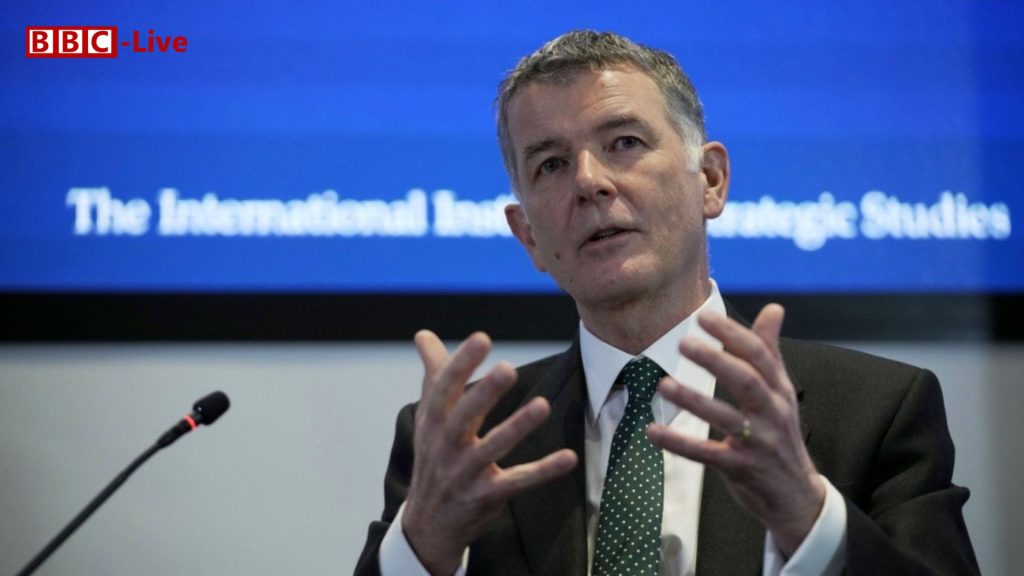
Richard Moore, the head of MI6, has issued a stark warning about the long-term consequences of abandoning Ukraine, stressing that it would put not only British and European security at risk but also that of the United States. Speaking in Paris, Moore made a passionate appeal to former President Donald Trump and the incoming US Republican administration, urging them to keep up support for Kyiv.
Moore argued that allowing Vladimir Putin to achieve his goal of reducing Ukraine to a “vassal state” would be disastrous, not just for Ukraine, but for the entire Western alliance. “If Putin succeeds in this, he won’t stop at Ukraine. It will be our security—British, French, European, and transatlantic—that’s threatened,” Moore warned during his rare speech alongside his French counterpart.
His words come at a time when voices within the Republican party, including Trump, have voiced concerns over the cost of supporting Ukraine. Trump has repeatedly stated that he could end the war “within 24 hours” and has questioned the financial burden. Some Republican figures, like JD Vance, have even suggested freezing the conflict at its current frontlines and delaying Ukraine’s NATO membership.
Moore, however, was clear: the cost of withdrawing support would be far greater. “The cost of backing Ukraine is clear, but the cost of turning our backs on it will be infinitely higher,” he said. He warned that a Russian victory would embolden not only Russia but also China, North Korea, and Iran, destabilizing regions across the globe.
The MI6 chief also pointed out that the war in Ukraine could set a dangerous precedent, especially with the involvement of North Korean troops, which he sees as a troubling sign of authoritarian regimes from Asia making their way into a conflict that had once been seen as purely European.
Throughout his speech, Moore emphasized the strength of UK-US intelligence collaboration, noting that, despite political shifts, the alliance would remain a key pillar of global security. He also highlighted Russia’s increasing sabotage activities across Europe, including incidents like the arson attack on a DHL warehouse in Birmingham, which was reportedly linked to Russian operatives.
“Putin’s aim is clear: to test the West’s resolve,” Moore said, adding that Western intelligence agencies had uncovered a series of reckless Russian sabotage activities. These actions, he argued, are part of a broader Russian strategy to undermine the unity of the West.
Moore’s speech was not just about Ukraine; it was also a subtle reminder of the deep ties between the UK and France, and the importance of transatlantic cooperation, especially as global challenges grow more complex.
As Russia continues to push its demands for “demilitarization and denazification” in Ukraine, Moore’s comments serve as a wake-up call: the stakes of this conflict are higher than ever, and the consequences of abandoning Ukraine could be felt far beyond Eastern Europe.




